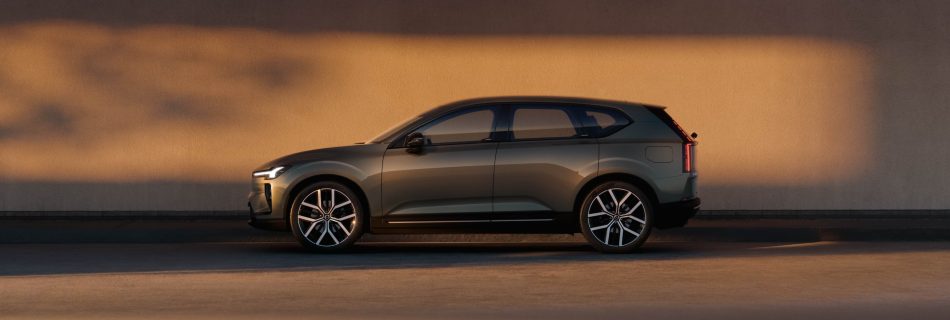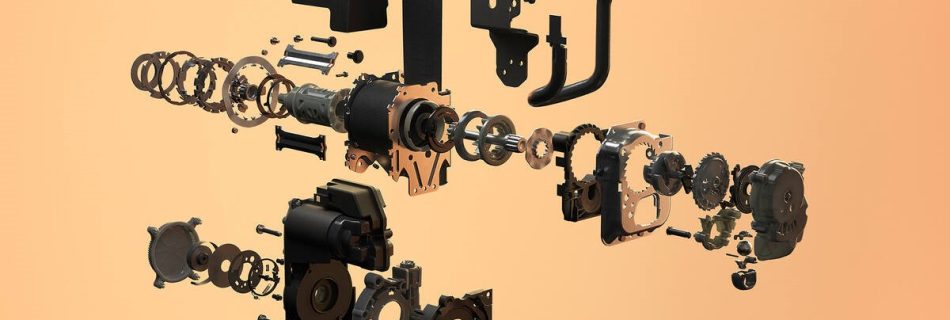The car that changes the game – meet the new, all-electric Volvo EX60
The car that changes the game – meet the new, all-electric Volvo EX60 Say hello to the Volvo EX60 – a new, all-electric mid-size SUV that changes the game in the largest electric market segment in terms of range, charging speed, performance and price. The five-seater, family-friendly EX60 ends range anxiety, delivers a ground breaking user experience and represents the next frontier in safety. It is also Volvo Cars’ first entry in the largest electric segment globally, allowing it to substantially increase its addressable market and electric market share. “The new, all-electric EX60 changes the game in terms of range, charging and price and represents a new beginning for Volvo Cars and our customers,” says Håkan Samuelsson, CEO of Volvo Cars. “With this car, we remove all remaining obstacles for going electric. This fantastic new car is also a testament of what we are capable of at Volvo Cars, with an all-new product architecture introducing new key technologies – mega casting, cell-to-body and core computing.” The EX60 can go up to a best-in-class 810 kilometres on a single charge in an all-wheel drive configuration. This doesn’t just make it go further than any electric car that Volvo Cars has ever created. It also beats its recently revealed competitors, setting a new standard for its segment. That same no-compromises approach is reflected in how fast it charges. A quick coffee stop is enough to recharge and hit the road again. The EX60 can add up to 340km of range in just ten minutes when using a 400kW fast charger. In other words, the EX60 turns range anxiety into range comfort and demonstrates that going electric is no longer a compromise. Design, engineering, hardware and software all work together to create a car that optimises driving range and matches many petrol cars. When ordering, the new customer experience has been designed for simplicity, transparency and precision. The offer gives customers transparency on price, clarity on what content they get in the car, and a precise estimated delivery time. Customers can also pick a pre-configured car available for instant delivery, always with the option for a fully customised car that takes slightly longer to deliver. The EX60 is available with three different powertrain variants. The P12 AWD Electric variant offers the class-leading range of up to 810km, while the P10 AWD Electric clocks in at a range of up to 660km. A rear-wheel powered P6 Electric variant delivers up to 620km of range. All in all, the EX60 is available in seven attractive variants, covering all needs and lifestyles. The EX60 comes with 10 years of battery warranty. In Sweden, the EX60 will also come with three years of free home charging. This offer applies immediately to private customers in Sweden before being rolled out into other markets. The EX60 is built on SPA3, Volvo Cars’ new electric vehicle architecture, and powered by HuginCore, the Volvo Cars core system. It sets new standards in scalability, modularity, manufacturing efficiencies and cost. Cell-to-body technology, next-generation in-house developed e-motors, a new battery cell design and mega casting all help to boost energy efficiency and driving range, while reducing weight. This also helps the EX60 to achieve the lowest carbon footprint for a fully electric Volvo car, matching that of the smaller EX30 and making the EX60 a better choice for the environment. Scandinavian design with purpose In terms of design, the EX60 takes the company’s Scandinavian design principles further into an all-electric era. It combines a stylish, confident and efficient exterior with natural, high-end materials inside that give customers a calm, refined and versatile space with smart storage. A low front, a sloping roofline and tapered body sides all boost overall aerodynamic efficiency. As a result, the EX60 slides through the air and has a very competitive drag coefficient of 0.26, contributing to the class-leading range. Inside, the EX60 is a star in versatility and practicality. The long wheelbase and flat floor create much more legroom in the rear, as well as a large luggage compartment and various smart storage spaces for personal items. For those who love music, the EX60 is an excellent choice with a premium 28-speaker Bowers & Wilkins audio system. For the first time in a Volvo car, this system also includes headrest speakers in all four main seats. The EX60 will be the first Volvo with Apple Music pre-installed with Dolby Atmos, delivering an immersive Spatial Audio experience. An intelligent car you can talk to naturallyAs Volvo Cars’ most intelligent car yet, the EX60 is packed with state-of-the-art technology designed to improve life behind the wheel. The EX60 is powered by the latest iteration of HuginCore, the Volvo Cars core system that empowers the car to think, process and act. It embodies the company’s approach to technology development, combining in-house development and collaboration with tech leaders such as Google, NVIDIA and Qualcomm Technologies Inc. The EX60 is the first Volvo car to launch with Gemini, the new AI assistant from Google. Gemini is deeply integrated with your car and lets you have natural and personalised conversations without having to remember specific commands. The introduction of Gemini reflects the longstanding relationship between Volvo Cars and Google, and Volvo Cars’ status as a lead development partner and one of the reference hardware platforms for AndroidTM Automotive OS. The EX60 also contains the most responsive user experience in any Volvo car to date. In this seamless and no-lag infotainment system, screens respond quickly, maps load instantly, voice assistants understand passengers better, and everything feels smooth, while the UX provides quicker access to key functions. One of the safest cars on the marketThis being a Volvo, it is one of the safest cars on the market and represents the purest form of the Volvo Cars Safety Standard, going above and beyond regulations and rating requirements. Enabled by HuginCore, the EX60 reaches new levels of safety, as it constantly assesses the world around the car through its wide array of sensors. The result is a car with a clear and precise …
Read more “The car that changes the game – meet the new, all-electric Volvo EX60”










